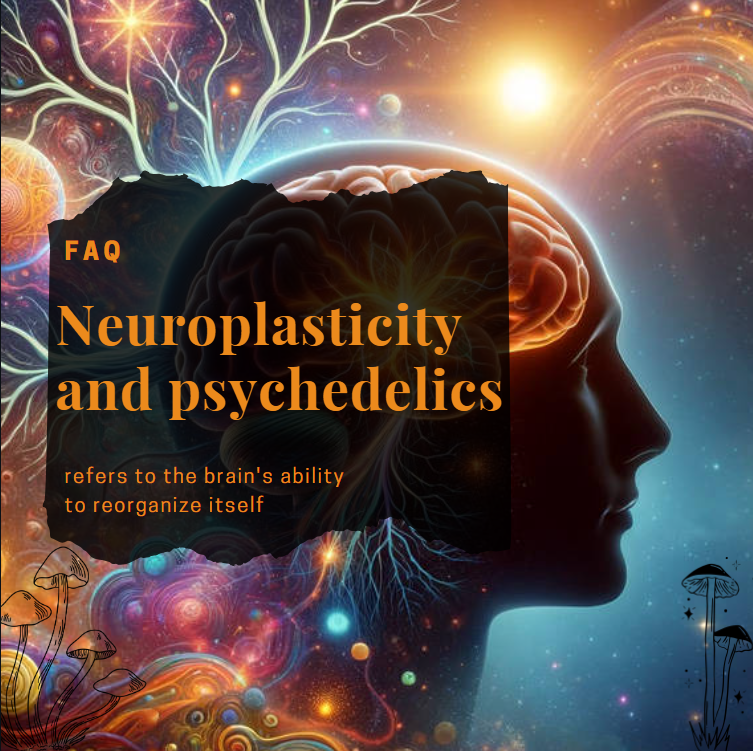
Neuroplasticity refers to the brain’s ability to reorganize itself by forming new neural connections throughout life. This process allows the brain to adapt to new experiences, learn new information, and recover from injury. Psychedelics have to influence neuroplasticity through various mechanisms:
Increased Synaptogenesis: Some research suggests that psychedelics, such as psilocybin and LSD, may promote the growth of new synapses, the connections between neurons in the brain. This increased synaptogenesis could enhance communication between brain regions and facilitate new learning and behavior.
Enhanced Brain Connectivity: Psychedelics have been shown to increase functional connectivity between different brain regions, particularly those involved in higher-order cognitive functions, such as the default mode network (DMN). This enhanced connectivity may facilitate novel insights, creativity, and self-awareness.
Modulation of Neurotransmitter Systems: Psychedelics primarily interact with serotonin receptors in the brain, but they may also influence other neurotransmitter systems, such as glutamate and dopamine. These neurotransmitters play key roles in synaptic plasticity and learning, and alterations in their activity could contribute to changes in brain function and structure.
Induction of Neurogenesis: Some preclinical studies have suggested that psychedelics may promote the growth of new neurons in certain brain regions, a process known as neurogenesis. Neurogenesis is believed to be important for learning, memory, and mood regulation, and its enhancement by psychedelics could have therapeutic implications for conditions such as depression and anxiety.
Facilitation of Psychological Flexibility: Psychedelic experiences often involve alterations in perception, cognition, and sense of self, which can lead to shifts in beliefs, attitudes, and behavior. These changes in psychological flexibility may be mediated by neuroplasticity and could underlie the therapeutic effects of psychedelics in conditions such as addiction, PTSD, and depression.
